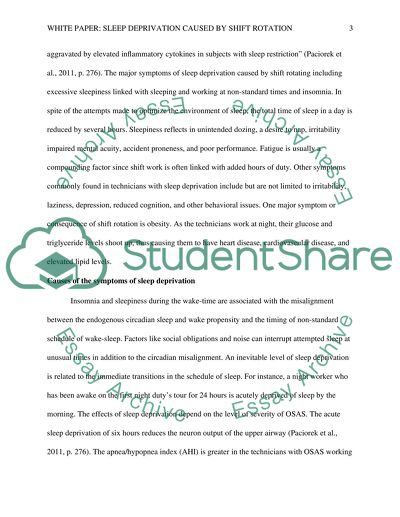Cite this document
(“White Paper: Sleep Deprivation Caused by Shift Rotation Essay”, n.d.)
Retrieved from https://studentshare.org/english/1472729-white-paper-on-sleep-deprevation
Retrieved from https://studentshare.org/english/1472729-white-paper-on-sleep-deprevation
(White Paper: Sleep Deprivation Caused by Shift Rotation Essay)
https://studentshare.org/english/1472729-white-paper-on-sleep-deprevation.
https://studentshare.org/english/1472729-white-paper-on-sleep-deprevation.
“White Paper: Sleep Deprivation Caused by Shift Rotation Essay”, n.d. https://studentshare.org/english/1472729-white-paper-on-sleep-deprevation.


